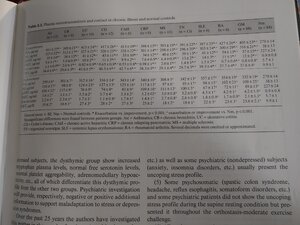@brokensoul, this study seems to imply that EEG changes occur only with tinnitus distress and not having tinnitus. I.e. mild tinnitus did not show changes. Do we know if rodents have tinnitus distress?
https://www.ncbi.nlm.nih.gov/pmc/articles/PMC4364116/
Also, interestingly, if I am reading this right they found that the brain changes associated with tinnitus in this study occurred with hearing loss over 8000 Hz (and only in those higher frequencies) and that the hearing loss itself may account for those changes.
https://www.ncbi.nlm.nih.gov/pmc/articles/PMC4364116/
Also, interestingly, if I am reading this right they found that the brain changes associated with tinnitus in this study occurred with hearing loss over 8000 Hz (and only in those higher frequencies) and that the hearing loss itself may account for those changes.

 Member
Member Director
Director
 !
!